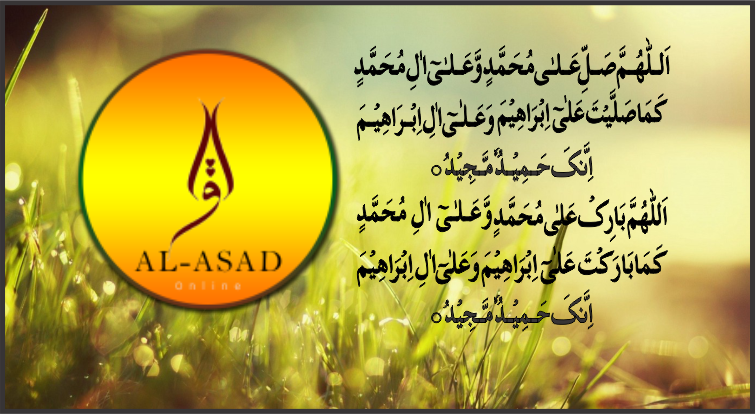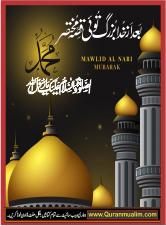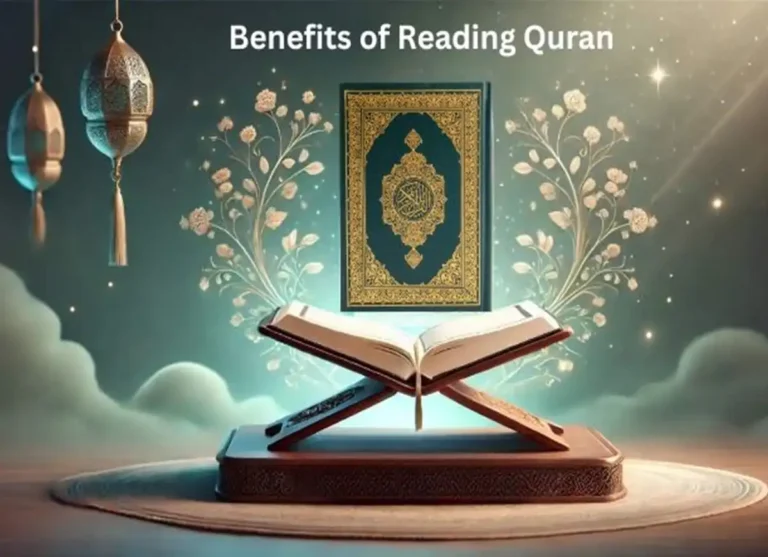- The Biography of the Holy Prophet Hazrat Muhammad in urdu & English
- Kitab Sahih Al Bukhari Imam Bukhari Urdu & English PDF Download
- Kitab Sahih Al Muslim Imam Muslim Urdu & English PDF Download
- Kitab Sunan Dawud Imam Dawud Urdu & English PDF Download
- Kitab Sunan Majah Imam Dawud Urdu & English PDF Download
Complete life of the Holy Prophet
The-Last-Prophet A Model For All Time
Life And Death Urdu Medium)
Portraits from the life of the Prophet Muhammad
The History of the Holy Prophet
The Death
The Messenger of Allah (Peace be Upon Him) was to stay in this world till the Islamic Shari’ah was completed and the code of moral purification was established in the society in the most perfect form. This aim was achieved at the time of the Prophet’s Farewell Hajj (Hajjatul Wida’). After the Shari’ah was fully implemented in the lives of the Muslims, it was announced in ‘Arafat on the occasion of Hajj: “This day, I have consummated your religion for you and finished My kindness upon you”[Al-Ma’idah: 3].
For some Companions specially gifted with prudence, the revelation of the Qur`anic Chapter Al-Nasr was a hint that the hour of the Prophet’s departure from the world was near. Also, in accordance with the Qur`anic instruction, (“So glorify the praises of your Lord, and ask His forgiveness” [An-Nasr: 3])
The increasing inclination of the Messenger of Allah (Peace be Upon Him) toward spending more time in the remembrance of Allah (Zikr) pointed to it. In the past years the Messenger of Allah (Peace be Upon Him) used to observe seclusion in the Masjid (E’tekaaf) in Ramadan for ten days, but in the tenth Hijri, he did it for twenty days. In the past years he used to hear the Angel Jibrail recite the Qur`an to him in Ramadan once, but in the last Ramadan of his life he did it twice. (Sahih Al-Bukhari, Kitabul Fazael Al-Qur`an. )He had also announced in his last Hajj that he did not hope to be with his Companions in the next Hajj (in other narrations he is reported to have said that he did not hope to perform a second Hajj).
On the occasion of Hajj, he bade farewell to his Companions with a heavy heart. He also visited the Martyrs of Uhud, who were already glorified with the Qur`anic words,
“Nay, they are living” [Al-Baqarah: 154] , after eight years. He went to their graves and prayed for them and bade them farewell in the moving way in which a person nearhis death bids farewell to his relatives. He then delivered a sermon in which he said: “I am going to the Pond of Kawthar before you, the expanse of which would cover the distance between Abla and Jahfa. I have been given the key to the treasures of the whole world. I do not apprehend that you will adopt Shirk (polytheism) after me, but I fear that you might fall a prey to the world and start killing each other for it. For if you do so, you will also be destroyed as were the nations before you.” The narrator says that this was the last sermon that he heard from the Messenger of Allah (Peace be Upon Him).( Sahih Al-Bukhari, Kitabul Janaaez, Bab Al-Salah ‘alash- Shaheed, Sahih Muslim. Kitabul Fazael. )

As mentioned earlier, Hazrat Zayd bin Haritha was unjustly killed by the Arabs residing at the border of Shaam (Syria). the Messenger of Allah (Peace be Upon Him) wanted to take revenge (Qasaas) of Zayd’s murder. One day before he fell ill, he deputed Osama, Zayd’s son, for the mission and gave an army in his command to avenge the death of Zayd from the evildoers.(Sahih Al-Bukhari, Kitabul Maghazi.)
The Messenger of Allah (Peace be Upon Him) visited Jannatul Baqee’, the graveyard for the general Muslims of Madinah, and felt somewhat unwell there.( Mustadrak Haakim, 3: 57) That day it was his turn to stay at the house of his wife Ummul Mo`mineen Hazrat Maymoona (he used to spend one day by turn with each wife in order to give each of them equal time and attention). During the five days of illness, he observed the usual practice of spending a day with each wife. On Monday when his illness increased, he took permission of his wives to stay at the house of Hazrat Aisha. Out of courtesy, he did not even clearly mention it to his wives. He simply asked, “Where shall I stay tomorrow?” His holy wives said, “Wherever it pleases you.” He was too weak to be able to walk independently. Hazrat ‘Ali and Hazrat ‘Abbas held him by arms and led him to the house of Hazrat ‘Aisha.(Sahih Al-Bukhari, Kitabul Maghazi, Bab Marazun Nabi wa Wafaatuhu.) As long as he could, he kept on going to the Masjid to lead all five prayers. The last Salah that he led was the Maghrib Salah (Evening Prayer). He was suffering from a headache and so, had tied a handkerchief around his head. In that Salah he recited the Qur`anic Chapter Mursalaat. (Sahih Al-Bukhari, Kitabul Maghazi, Bab Marazun Nabi wa Wafaatuhu.)
When the time of the ‘Isha Salah approached, he inquired, “Has the Salah been performed (in the Masjid)?” The persons around him said, “People are waiting for you.” Upon it, he asked for water, which was brought in a large metallic container. He took a bath from that water. He then wanted to stand up, but he fainted. As soon as he recovered his senses, he asked again, “Has the Salah been performed?” Those attending upon him replied in the negative. He then took a bath the second time, but when he tried to stand up, he fainted again. Upon recovering, he took a bath again, but when trying to stand up, he again became unconscious. After regaining senses this time, he said, “Let Abu Bakr lead the congregational prayer.” Hazrat ‘Aisha commented, “O Prophet of Allah! Abu Bakr is tender-hearted and will not be able to stand in your place.” The Messenger of Allah (PBUH) asked again for Abu Bakr to lead the prayer. Accordingly, Hazrat Abu Bakr led the prayers for several days.
The fourth day before his death, The Messenger of Allah (PBUH) became a bit cheerful around the time of the Zuhr Salah. He asked for seven Mushk (leather water container) of water to be poured over him. Thus taking a bath, he came to the Masjid with the support of Hazrat ‘Ali® and Hazrat ‘Abbas . The Salah had started and the believers were standing in congregation behind Hazrat Abu Bakr . Realizing the presence of The Messenger of Allah (PBUH) there, Hazrat Abu Bakr wanted to move behind. The Messenger of Allah (PBUH) signaled him to continue, sat down beside him, and joined the prayer. Hazrat Abu Bakr followed the Messenger of Allah (Peace be Upon Him). in Salah, and the others performed the rituals of Salah by looking at Hazrat Abu Bakr. (Sahih Muslim, Kitabus Salah, Sahih Al-Bukhari, Kitabul Maghazi, Bab Marazun Nabi wa Wafaatuhu.)

After Salah, the Messenger of Allah (Peace be Upon Him). delivered a sermon, which was the last sermon in his life, in which he said: “Allah granted a bondman of His an option to choose between His favors of this world and His blessings of the Hereafter. His bondsman chose the blessings that are with His Lord.” Hearing it, Hazrat Abu Bakr burst into tears. People looked at him in surprise and wondered why a person should cry when the Messenger of Allah (Peace be Upon Him) was simply narrating an event. But Hazrat Abu Bakr had realized that the Messenger of Allah (Peace be Upon Him) was, in fact, talking about himself in disguise. Thereafter the Messenger of Allah (Peace be Upon Him) added, “Of all, I am obliged to Abu Bakr most. If it were possible for me to take a friend from my followers in this world, I would have chosen Abu Bakr. But the relationship of Islam encompasses friendship. All the windows that open toward the Masjid should be closed except the window of Abu Bakr. (Sahih Al-Bukhari, Kitabul Manaqib. Sahih Al-Bukhari, Kitabul Maghazi. ) The people before you turned the graves of their prophets and pious persons into places of worship. Beware! You do not do so.”
During the period of the Prophet’s illness, the aggrieved Ansar used to cry remembering his kindness to them. Once Hazrat Abu Bakr and Hazrat ‘Abbas came upon a group of the Ansar who were sitting in grief and inquired of them the cause of their sadness. They said, “We remember the gatherings of the Messenger of Allah (Peace be Upon Him). One of them reported the matter to the Prophet Peace be Upon Him . That day when he was feeling better and was speaking to his Companions, he said about Ansar: “O People! I instruct you in regard to Ansar. Other Muslims will increase while the Ansar will decrease in number like the salt in the flour. They fulfilled their obligation; now you have to do your part. If I am a body, they are like the digestive system.
As discussed earlier, the Messenger of Allah Peace be Upon Him had appointed Osama bin Zayd as the commander of the army which was being sent toward the Romans. Some persons complained that a young man was given the command in the presence of the elders and the experienced. (Ibn S’ad has clarified that they were the hypocrites). the Messenger of Allah Peace be Upon Him referred to it also in his sermon and said: “If you are critical of the appointment of Osama as commander, you were also critical of the appointment of his father Zayd as commander. By Allah! He deserved that position and was dearest to me, as he (Osama) is dearest to me after him.”(Sahih Al-Bukhari, Kitabul Maghazi.) In contrast to other religions, Islam emphasizes that religious commandments actually come from Allah and that a Prophet simply conveys them to the people in words and deeds. As other religions had erred seriously in taking their prophets as lawgivers, they had elevated them to the level of divinity, which led them to Kufr (unbelief) and Shirk (polytheism). the Messenger of Allah Peace be Upon Him clarified this point as emphatically as possible: “Do not relate the commandments of the permissible (Halaal) and the prohibited (Haraam) to me. I have made permissible only those things which Allah has declared permissible in His Book, and have made prohibited only those things which Allah has declared prohibited.”
The reward or punishment, according to Islam, depends on the deeds of a person. Thus the Messenger of Allah (PBUH) told his closest relatives: “O Fatma, daughter of the Messenger of Allah (PBUH), and Safiya, aunt of the Messenger of Allah Peace be Upon Him Prepare for the Hereafter, for I cannot save you from Allah (His questioning).”

After delivering the sermon, he came to Hazrat Aisha’s house. He loved Hazrat Fatma Zahra, his daughter, very dearly. He sent for her. When she came, he said something in her ears, by listening to which she started crying. He then called her close again and said something to her ears, by listening to which she laughed tenderly. When Hazrat Aisha® inquired about it from her later, she said that the first time the Prophet Peace be Upon Him had told her that he was going to die in that illness, which made her cry, and the second time he told her that she (Hazrat Fatma) would be the first in his family to join him in the Hereafter, which made her laugh in happiness.(Sahih Al-Bukhari, Kitabul Maghazi, Bab Marazun Nabi wa Wafaatuhu.)
The exaggerated love with which the Jews and the Christians had treated the graves and relics of their Prophets had come close to idol worship. Islam aimed at controlling such excesses, and the thing that occupied the mind of the Messenger of Allah Peace be Upon Him most during his illness was this very concern. By chance, some of his holy wives, who had traveled to Habsha (Abyssinia), mentioned the deities of the Christians and their statues and figures. The Messenger of Allah Peace be Upon Him explained that when a pious person from them died, they took his grave as a place of worship and installed his statue there. They would be, he added, the worst people on the Day of Judgment in the sight of Allah.(Sahih Muslim, Kitabul Masaajid.)
In restlessness, the Messenger of Allah Peace be Upon Him sometimes covered his face with a sheet of cloth and then after a while put it aside when he felt warm. Hazrat Aisha heard him saying:
“May Allah’s curse fall on the Jews and the Christians. They made the graves of their Prophets places of worship.”
In this very state of restlessness, he remembered that he had put some Asharfis (gold coins) with Hazrat Aisha . He inquired about them from her and told her: “Shall Muhammad meet his Lord as one in doubt (that He may bless him with resources whenever He likes)? Go and give them away in the path of Allah.”(Musnad Ahmad, 6: 49.)
The Prophet’s illness had ups and downs. On Monday when he departed from this world, he felt better. His little house was adjacent to the Masjide Nabawi. Early morning he lifted the curtain and saw Muslims engaged in the Fajr Salah. The sight pleased him so much that he laughed in happiness. The devotees thought that he intended to join the congregation, which created some commotion among them. Hazrat Abu Bakr tried to move back from the place of the Imam. the Messenger of Allah Peace be Upon Him signaled him not to do so and dropped the curtain.(Sahih Al-Bukhari, Kitabul Maghazi, Bab Marazun Nabi wa Wafaatuhu.)
This was the last time when the Companions had the pleasure of catching a glimpse of the Messenger of Allah (Peace be Upon Him . Hazrat Anas bin Maalik narrates that his countenance looked like a page of the Book of Allah:( Sahih Muslim, Kitabus Salah. ) it had turned white.
As the day advanced, he started lapsing into unconsciousness, from which he recovered. Hazrat Fatma noticed it and commented in pain, “Oh, the suffering of my father!” The Messenger of Allah Peace be Upon Him told her, “Your father will not undergo any suffering after this day.” Hazrat Aisha narrates that when the Messenger of Allah Peace be Upon Him was healthy, he used to say that the Messenger of Allah Peace be Upon Him is given the right to accept death or continue to live. But in the days of his terminal illness, he used to utter the words: With the people to whom Allah showed his favor. He also sometimes said the words of supplication: Allah is the best Friend.
Hazrat Aisha understood from his utterances that the Messenger of Allah Peace be Upon Him was greatly eager to meet his Lord.(Sahih Al-Bukhari, Kitabul Maghazi, Bab Marazun Nabi wa Wafaatuhu.)
A little while before the Prophet’s death, Hazrat ‘Abdur Rahman , son of Hazrat Abu Bakr , came to see him. the Messenger of Allah Peace be Upon Him was lying in bed while his head rested against the chest of Hazrat ‘Aisha. Hazrat ‘Abdur Rahman had a Miswak (a toothbrush of a fresh twig). The Prophet Peace be Upon Him looked at it eagerly. Hazrat ‘Aisha understood that he wanted to brush his teeth. She took the Miswak from the hands of her brother, chewed it to make it soft, and gave it to the Prophet (pbuh). He brushed his teeth like a healthy person.(Sahih Al-Bukhari, Kitabul Maghazi, Bab Marazun Nabi wa Wafaatuhu. ) The time of his departure to his eternal abode was approaching close. This was the afternoon time.(Ibn Is-haque writes that the Messenger of Allah Peace be Upon Him breathed his last at noon. But Hazrat Anas bin Maalik and Bukhari narrate that he died by the end of the day. Hafiz Ibn Hajar has tried to combine the two narrations by saying that the noon had started setting down. There was a sound in his chest caused by heavy breathing. Then his lips moved and the persons around heard him feebly uttering these words: “Salah and slaves.”(Mustadrak Haakim, 3: 59.)
Close to him was a water vessel. The Prophet (PBUH) put his hand in it and rubbed the wet hand on his face. He covered his face with a sheet and then removed it. Then he lifted his hand up and said, ” Allah is the best Friend, With these words on his lips, he breathed his last.(Sahih Al-Bukhari, Kitabul Maghazi, Bab Marazun Nabi wa Wafaatuhu.)
(O Allah! Shower Your blessings in abundance on the Messenger of Allah Peace be Upon Him , his progeny, and Companions.)
https://youtu.be/5GS7qMN8Pfk
Our Android Apps
About CEO Al-Asad Online
Hafiz Abdul Hameed
Master In Islamic Studies
(Tajweed, Waqf)
Web Developer/Administrator
Web Content Writer
Blogger, SEO Expert
Graphic Designer
WhatsApp: +92 3017363500








